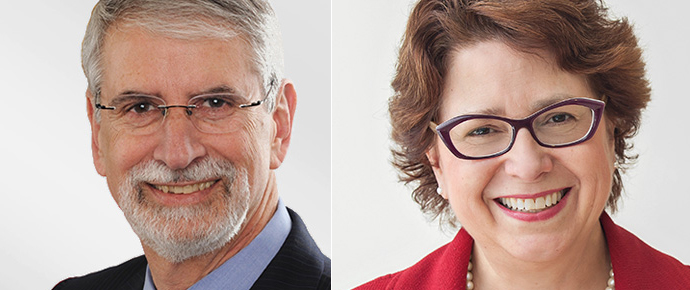StarBridge Advisors Brings Practical, Real-World Experience to HIT Clients

StarBridge Advisors is a new healthcare IT advisory firm launched by David Muntz and Sue Schade, along with Russ Rudish, a principal at Healthcare IT Leaders.
Healthcare IT Leaders is a strategic partner to StarBridge, supporting their initiatives as needed, while expanding our own consultative offerings for our hospital and health system customers.
Many in healthcare IT know Sue and David as peers and industry thought leaders. Both have worked as CIOs at large health systems and are active in HIMSS and CHIME. Sue also writes a highly-regarded and often referenced blog that is republished on Healthcare IT News.
>> Find top health IT talent for contract and perm hiring needs
StarBridge provides interim management, IT consulting, and executive coaching among other IT services. They describe their approach as “practical, unbiased, open, and plain speaking based on real-world experience.”
To learn more about StarBridge, we asked David and Sue to tell us more about their new partnership and their working styles.
Healthcare IT Leaders: Both of you clearly bring a lot of experience to bear on this new venture, but how will you work together? Do you have different areas of expertise that are complimentary?
David Muntz: Sue and I have been working together for years on matters related to policy. We both share experiences at managing shops that built and bought software. Between the two of us, we have overseen the implementation of EHRs from every primary vendor.
In addition, we have managed more than 1,000 other technologies and services from hardware, software, firmware, and clinical engineering vendors. Though there is significant overlap, we also have unique experiences that broaden the areas over which we can be effective.
The universe of our shared experiences is very wide and can benefit any member of the C-Suite, not just the CIO. Where we might occasionally find a gap, we have other colleagues to whom we can turn for counsel and collaboration.
Sue Schade: David sums it up well. I’d add the importance as colleagues of having mutual respect, a very collaborative style, and common goals. We have all that, and more. By the way, I include Russ Rudish here as well, who brings a wealth of healthcare background from Deloitte. He is a critical partner on this team and we all work well together. Between the three of us, our combined experience and knowledge will be a huge asset to our clients as we work together on their behalf.
Healthcare IT Leaders: So what are challenges ahead that you see for hospital IT departments and their leaders.
David Muntz: The challenges in any one IT department are going to depend on a lot of different corporate factors including culture, profitability, competitive landscape, and the support given to the IT area. But common themes for most of us in IT leadership include unbounded expectations, changes in payment models, cybersecurity, interoperability, risk management, and the need for uninterrupted provision of services. Regardless, there is great opportunity in the confluence of challenges. More complete data, big data technologies, and analytics tools will permit discovery and improved management which will help all participants in the care continuum move closer to achieving the 6 aims identified by the Institute of Medicine in 1999 (safe, timely, effective, efficient, equitable, patient centered care).
Sue Schade: I would add an emphasis on a few challenges – the emerging digital health efforts beyond the core systems that IT is expected to support but are often led by others outside of IT; the continually evolving role of the CIO, and continued cost pressures requiring IT leaders to operate more efficiently while keeping up with the insatiable demand for their services.
Healthcare IT Leaders: With all of these demands on IT, can we presume that this is where you see StarBridge Advisors adding value by assisting organizations in their planning and decision making?
David Muntz: Absolutely. The pace and demands of IT don’t always allow a busy CIO to focus on every piece of work that needs and deserves their attention. It’s useful in those circumstances to engage outside resources for support, someone who has similar experiences and capabilities to permit parallel processing to continue. I think trust is key to that dual effort.
Sue Schade: Yes, trust is extremely important and that’s where the backgrounds that David and I share come into play. An experienced CIO can be an additional set of eyes to help an incumbent CIO validate or challenge their perspective, review a plan, assess their environment, or provide trusted mentoring. So that’s the value we’re providing: informed advice from an unbiased colleague whose only motivation is the success of their client.
Our mission is truly to be trusted advisors helping our clients innovate, transform, and lead. I’m confident we can be successful together and have a positive impact on our industry.
